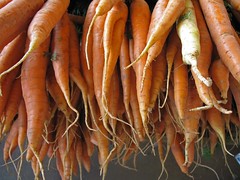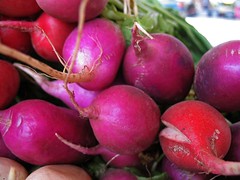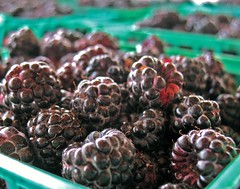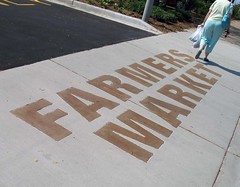Dear You Tube,
I surrender. You win. I am your humble servant. All hail you.
May I have at least a portion of my life back now?
Meekly,
mzn
***
-
PT Anderson talking to Henry Rollins about his current film project based on Upton Sinclair's novel Oil. At 3:15 he talks about being Robert Altman's understudy shooting Prairie Home Companion. HR's tattoos are a distraction. They should put long sleeves on him for this gig.
-
Jorge Luis Borges from 1976, in Spanish (no idea what he's talking about).
-Noam Chomsky debates Michel Foucault in 1971 (parts
one and
two). Foucault listens to Chomsky with his tongue sticking out the corner of his mouth. Both men speak in paragraphs.
-
Leonard Cohen in 1966 plugging Beautiful Losers. "By writing a pornographic novel in a sense you're forced into the role of a very minor hero."
-
Francis Ford Coppola on film preservation for the LoC. "Technology is a servant. It's not a master." Years before You Tube, Coppola describes the internet as a future "vast vault of our common human culture, the real wealth of the human race."
-
Daniel Dennett. "Of course there is no God, but so what?" Later, "Very few people behave as if they really believe in God. A lot of people behave as if they believe they should believe in God."
Rather tedious. If you have a negative impression of academics, this video will not cure you of it.
-
Jacques Derrida on suffering anti-Semitism as a child in Algeria. For someone notorious for his academese, he speaks plainly, directly, and with great feeling.
At 1:37 he makes air-quotes with a single pointing index finger on each hand rather than the two-fingered hopping-bunny gesture that itself now comes off as deadly ironic.
At 2:17 he strikes a classic "thinker" attitude, thumb and two fingers against his forehead, as though pressing on his skull will help the thoughts form.
At 2:48 you can see that he's holding a pink bic cigarette lighter in his hand. Details, details.
-
Fellini directing Satyricon, his voice on the set at once gentle and authoritative. The director as God.
-
Richard Feynman first in 1965 standing at a blackboard in b&w, then in 1983 sitting on a sofa in color, explains why they gave him the Nobel Prize. He smiles a lot, and it seems there is nothing he would rather be doing than talking physics in front of a camera. He talks with his hands and his accent sounds Brooklyn (
Wikipedia: Far Rockaway, so I'm not far off), and these aural and visual cues are remarkably engaging and persuasive. The curl of his fingers and pitch of his voice seem to make you understand properties of light as it bounces around the room.
-
Malcolm Gladwell responds to a sycophantic question (Has the internet reached a tipping point?) with an unconvincing attempt at self-deprecation.
-
John Irving: "I don't see myself as an intellectual. I don't even see myself as an artist. I think of myself as a craftsman."
-
Jack Kerouac on the Steve Allen Show from 1959. It might seem like nothing if you were a TV viewer in the 50s, but to me it's quite odd that Allen played piano while interviewing his guests.
-
Yves Klein, "Anthropometries of the Blue Period and Fire Paintings," 1960. Woman as paintbrush, as stencil. Then out comes an enormous phallic blowtorch. Probably NSFW.
-
David Lynch with mesmerizing body language. "I'm looking for a certain kind of fish to translate into cinema." In context it makes more sense, but out of context it sounds more Lynchian.
-
Russ Meyer. "Her breasts were so huge..."
-
Errol Morris identifies with the topiary artist in his film Fast, Cheap and Out of Control. This clip makes you realize how important style is even in something as seemingly plain as the talking-heads documentary. If Morris himself had shot this clip it would a thousand times more interesting.
On his desire for immortality through his art, which he addresses obliquely by describing a visit to a dinosaur exhibit: "It's only the privileged few of us who get to be fossils."
For comparison's sake, here is Morris's
tribute to the movies from the 2002 Oscars. Lots of famous faces here. I count two chefs, Rocco and Alice. She says, "Movies are like food. They're essential to your life." Lots of faces I recognize but without being able to match them to a name. I caught Susan Sontag, Donald Trump, Laura Bush, Philip Glass, and a bunch of others.
-
Salman Rushdie on The O'Reilly Factor. Rushdie survived nine years of the Ayatollah's fatwa, so O'Reilly should be nothing.
He seems not to know O'Reilly's reputation. He reacts to the blustery questions about Islamic fascism and people trying to kill him (posed sympathetically) like someone being interviewed by Ali G: earnest, trying to find common ground.
-
Jonathan Safran Foer on being a vegetarian. When he says he doesn't think his non-veggie friends are "unethical" you can kind of tell that, actually, he hasn't made up his mind about it. Why promote the virtues of vegetarianism if you don't think this is an ethical choice?
-
Jean-Paul Sartre.
-
Charles M. Schulz becoming misty-eyed as he describes putting Peanuts to rest. "That poor kid, he never even got to kick the football," he says, laughing through his tears.
-
Kurt Vonnegut on The Daily Show. Don Rumsfeld: "He is so dumb!"
-
Tom Waits on The Mike Douglas Show in 1976. After performing "Eggs and Sausage" (is there any better food song?) from Nighthawks at the Diner he submits to the interview (beginning around 4 minutes). I always thought Waits's hipster persona was pretty authentic, but here as a young man he seems like a poseur and Douglas pretty much calls him on it, calling him middle-class and asking how he came by his voice. Waits calls himself a "curator," an apt if surprising description of his songwriting.
Asked if he considers himself a poet or a singer, Waits replies, "I'm a Methodist." I think he has used that one more than once.
(Cf.
Harmony Korine on Letterman.)
-
Wim Wenders interviewed, seems like a press junket setup. Wenders is amused when the reporter's cell phone rings during the interview.
-
Slavoj Zizek begins by answering the question, What is Philosophy? But within 45 seconds he is talking about a deadly virus from outer space.
At 1:39 we cut to Zizek pontificating from his bed in what appears to be a hotel room, the covers pulled up over his tummy but his bare hairy chest exposed for the camera. "Philosophy is a very modest discipline" comes off sounding less than sincere from this position. At 2:57 he pulls the covers up a bit and repeats his line about philosophy being very modest, oblivious of his double meaning.
After 3:00 we see a series of fake ads on a vintage television screen pointing out ostensibly devastating contradictions of postmodern life: cream without fat, beer without alcohol, coffee without caffeine. For this you need philosophy? "Today's hedonism combines pleasure with constraint." But not yesterday's? His best example to epitomize the condition of late capitalism is chocolate laxatives. "Do you have still constipation? Eat more of this chocolate." Does chocolate even cause constipation? (I search Google; some claim it does.) An offscreen audience laughs a bit but without a reverse shot we can't hope to tell if they're laughing with or at.









